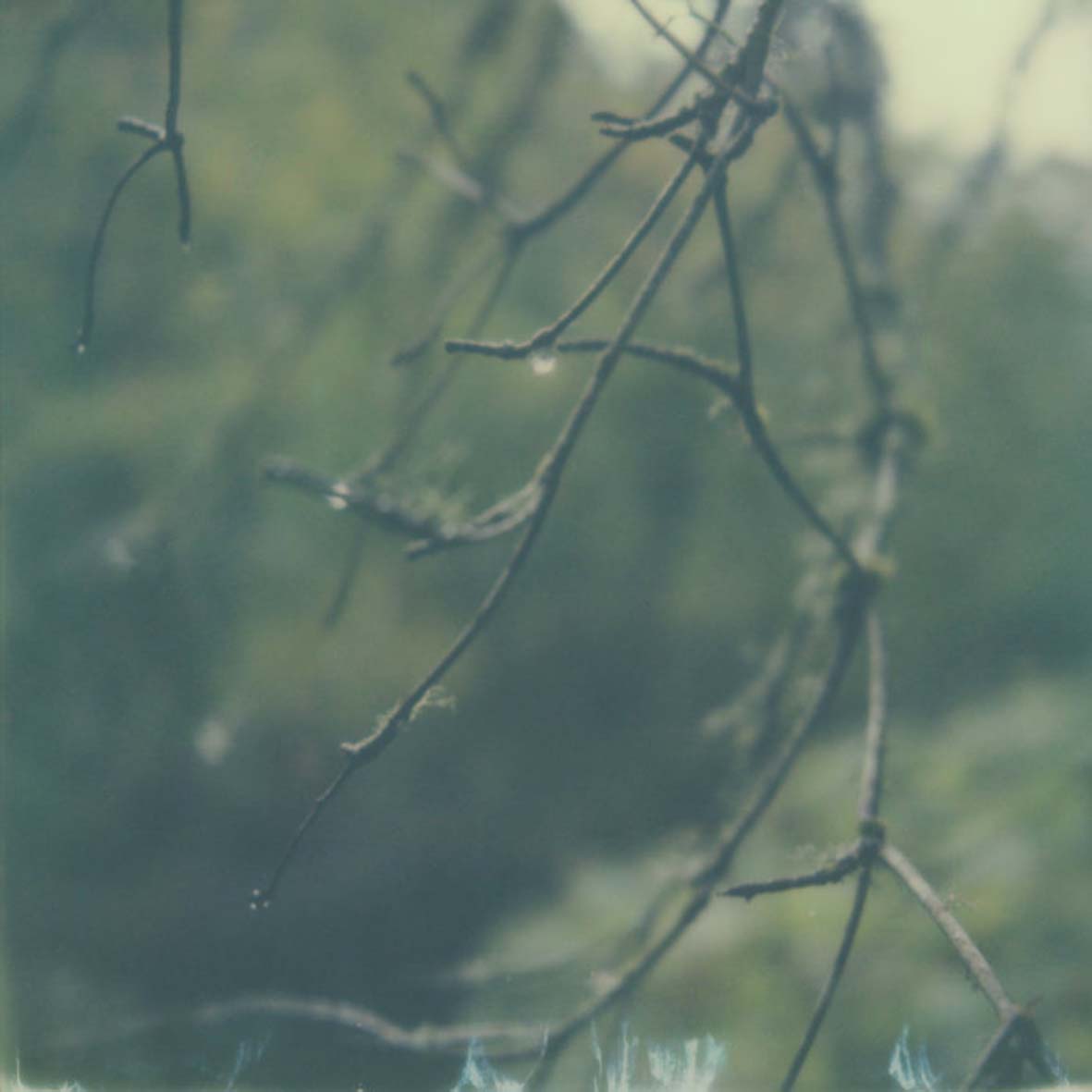
While I suspect Thomas Meluch will always be best known for his more traditional albums, he has quietly become one of North America’s most consistently compelling ambient/drone artists over the last few years.  On this, his first full-length for Portland’s Beacon Sound, Meluch returns to roughly the same territory that he explored on 2015’s gorgeous Sonnet and his self-released Stanza series: lush, slow-moving, and gently undulating drones drifting through a haze of tape hiss.  There are some intriguing small-scale transformations to be found, however, as Meluch's focus has subtly shifted away from structure and melody into an increasing deep fascination with the textural possibilities of weathered and distressed tapes.
The seven songs of Lignin Poise are all very much of piece, essentially unfolding as a series of subtly different variations on single strong vision.  The opening "Hawk Moth Mirage" is probably the strongest articulation of that vision though, feeling like a massive cloud expanding and billowing outward in slow-motion, yet diffuse enough to allow some dazzling and ephemeral flickers of sun to shine though.  I have probably used similar language to describe similarly hazy yet dynamic drone albums, but few artists can make it feel as effortless and organic as Benoit Pioulard.  "Hawk Moth Mirage" feels like a vaporous living entity that Meluch simply conjured into being.  That, more than anything, is the genius of Lignin Poise: a master illusionist has artfully blurred and obfuscated his compositions so skillfully that they feel more like a natural, elemental phenomenon than a painstakingly layered and produced collage of synth tones.  It essentially feels like Meluch astrally traveled into a radiant, rapturous, and light-filled alternate dimension, made a bunch of stunning field recordings, then accidentally left all the tapes in his yard for a few days: glimpses of absolutely sublime beauty abound, but it feels like the struggling tape deck is having quite a hard time getting the speed the just right and the signal to noise ratio errs heavily towards the latter.
While that general description could almost be cut-and-pasted to apply to any song on Lignin Poise, there are a handful of stronger pieces that Meluch allows a bit more time to unfold.  "Same Time Next Year," for example, is essentially a reprise of "Hawk Moth Mirage" in almost every respect, but with the see-sawing pointillist synth motif replaced by a glacially unfolding melody that swells out of the underlying chords only to quickly dissolve.  It is quite lovely and understated, unfolding like a warm and bittersweet dream.  As usual, Meluch’s genius for texture and detail does a lot of the heavy lifting, as the shivering, decaying notes appealingly fall somewhere between "spectral" and "sizzling."  The atypically brief "Vesperal" is another gem, largely eschewing instrumentation in favor of layered, blurry voices.  It sounds like a warped VHS tape of an angelic choir, yet gradually becomes something a bit darker and more mysterious, as the voices sound increasingly dissociated from one another and the surrounding grit takes on an almost grinding texture.  Similarly brief, "On Form" is another divergent experiment, gradually building up to a muted crescendo that sounds like churning, overlapping loops of string ensembles emerging from a thick fog.  Elsewhere, Meluch returns once more to his "hissing dream cloud" comfort zone with the album’s closing pieces. "Rook" diverges a bit from the formula with the addition of a wobbly repeating melodic line, however.  In fact, it sounds weirdly like an abstract, hallucinatory, and monomaniacally obsessive cover of Julee Cruise's "Falling" (better known as the original Twin Peaks’ theme) that just endlessly fixates on the ascending melody that leads into the chorus.  The 10-minute title piece heads in the opposite direction though, blurring its underlying structure and its buried melodies so effectively that it just feels like a warmly enveloping multi-colored fog rolling across a field or floating upward from a twilit harbor.
While a few of the other pieces sometimes feel a bit like Meluch is treading water, it is extremely hard to find fault with Lignin Poise at all.  Within the realm of ambient music, Benoit Pioulard shares a lot in common with Andrew Chalk: both artists make extremely lovely, instantly recognizable music and rarely release a weak album.  It would certainly be cool if each new release marked an unambiguous leap forward, but art does not work like that.  Instead, Lignin Poise is kind of a lateral evolution, noticeably tweaking some elements, but not so much that a casual listener would find it conspicuously different from, say, Stanza.  As such, Lignin Poise is significant mostly for just being another great Benoit Pioulard album that deepens an already wonderful body of work.  Admittedly, this is probably the most uniformly strong of Meluch’s ambient releases to date, but Sonnet and Stanza both pack enough moments of transcendent, gently hallucinatory heaven to make choosing a favorite an impossible and unnecessary endeavor.
 
Read More

